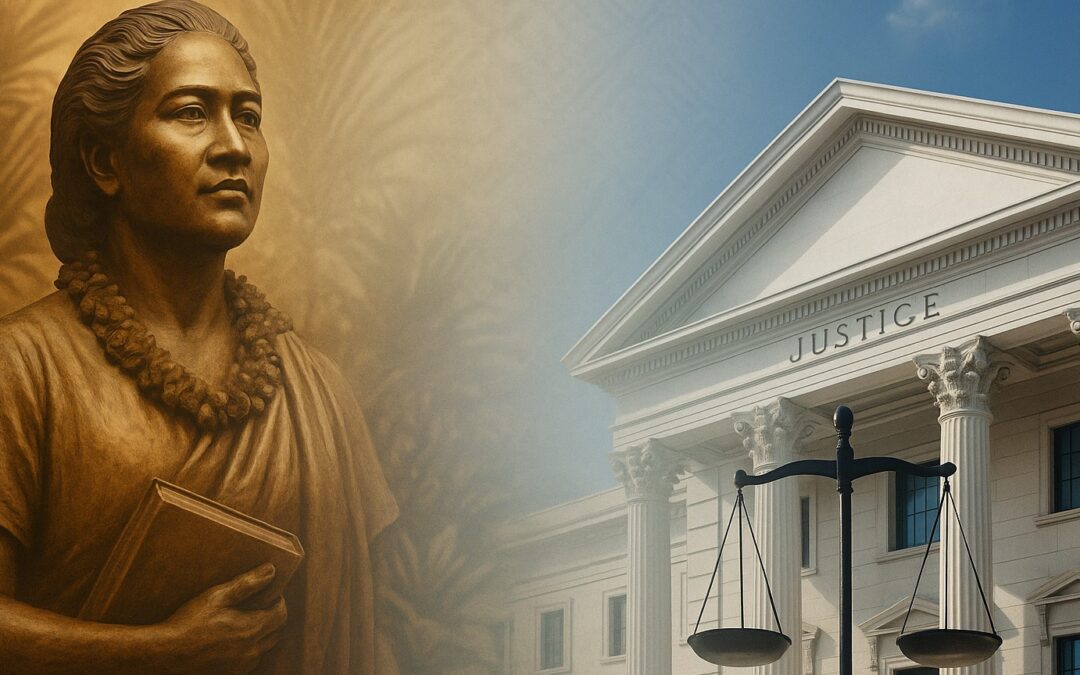The Kamehameha Schools Lawsuit: A Fight Over Indigenous Preference and a $15 Billion Trust
A new federal lawsuit, filed in October 2025 by Students for Fair Admissions (SFFA), the group responsible for ending affirmative action nationwide, is challenging the admissions policy of Kamehameha Schools in Hawaiʻi. The school system, which is backed by an endowment valued at over $15 billion, gives preference in admissions to students of Native Hawaiian ancestry.
The core legal question is stark: Can a private school in Hawaiʻi legally give preference in admissions to students of Native Hawaiian ancestry without violating federal civil rights law?
The Legal and Historical Context
This legal battle isn’t new. Nearly two decades ago, in Doe v. Kamehameha Schools (2006), the Ninth Circuit Court of Appeals initially upheld the policy. The court viewed it as a legitimate remedial effort, honoring the will of founder Princess Bernice Pauahi Bishop to improve the education and welfare of Native Hawaiians. That case was ultimately settled for $7 million with the non-Hawaiian student’s family before reaching the U.S. Supreme Court, but the underlying debate was never fully resolved.
SFFA, which has brought this current suit on behalf of non-Hawaiian member families (referred to as Family A and Family B) who were discouraged from applying, argues that Kamehameha’s use of ancestry-based preference is illegal and that the school’s justification for remedying educational disparities is now outdated. Kamehameha Schools’ trustees have promised a “vigorous defense,” stating that “The facts and the law are on our side.” The lawsuit has also been met with strong local resistance, including a public rally in support of the school.
Why This Case Matters for Hawaiʻi
The lawsuit touches on fundamental issues of fairness, equality, and the government’s responsibility to its indigenous people.
-
The Threat: If a court rules that Kamehameha’s preference policy violates 42 U.S.C. § 1981 (which prohibits racial discrimination in private contracts), it could create a legal precedent that threatens other initiatives designed specifically for Native Hawaiians, including those related to housing, healthcare, and cultural preservation. The lawsuit specifically targets the admissions contract, arguing it constitutes illegal “race-based contracting.”
-
The Opportunity: Conversely, if the courts uphold the policy by reaffirming that Native Hawaiian status is an indigenous political classification, not merely a racial category, it would strengthen the foundation for Native Hawaiian self-determination and protect educational opportunities for future generations.
This case is more than a legal argument; it’s about how Hawaii defines its history, its people, and its commitment to the future.
About This Resource
This website was created to provide clear, factual, and respectful information about this complex legal challenge for everyone, not just legal professionals. Our goal is to help the community understand what is happening and why it’s so important.
We provide summaries of:
-
The history of the policy and prior court decisions, including the 2006 settlement.
-
The key federal laws involved (including 42 U.S.C. § 1981, Title VI, and Title VII).
-
The legal distinction between “minority” and “indigenous” classifications.
-
The current legal developments, the specific claims being made, and what they could mean for Hawaii.
We do not take sides. We believe that an informed community is a stronger community.
